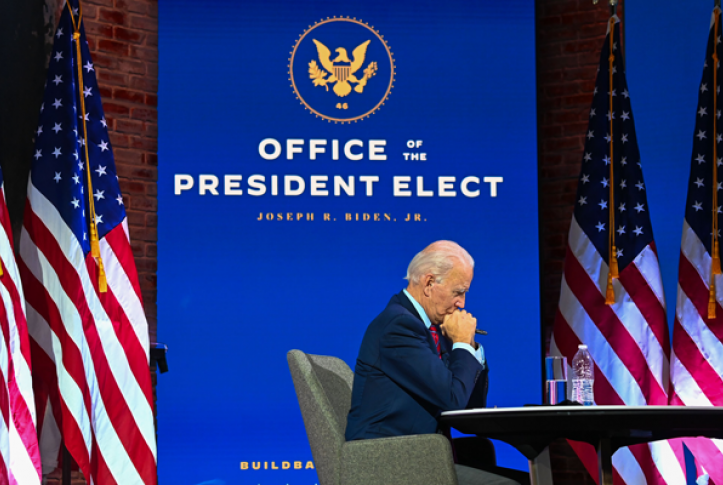President-elect Joe Biden set out an ambitious health care agenda during his campaign. Now, with Democrats holding a bare majority of the 117th Congress, it may be possible to find bipartisan agreement to move forward on parts of that agenda, such as expanding the Affordable Care Act’s (ACA) premium subsidies. Or he can use budget reconciliation, which only requires a simple majority. But enacting more controversial programs, like a public health plan option, will be more difficult. In any event, he will likely use regulatory initiatives to achieve much of his agenda.
Biden’s regulatory program will address a wide range of health care topics, including controlling the COVID pandemic and reducing health care inequities. This post will focus on options to expand affordable health care coverage for individuals and families.
Replacing Trump Administration Regulations
The Trump administration adopted regulations, guidance, and policies that have undermined the ACA and reduced access to marketplace health plans and Medicaid coverage. The incoming Biden administration will likely roll these back and put in place policies to expand and make coverage more affordable. Specific measures might include:
- expanding the annual marketplace open-enrollment period to 90 days
- increasing funding for advertising and outreach to help people find and enroll in coverage, as well as expanding the ACA’s navigator program
- restricting short-term limited-duration health plans to three months with one renewal term; these plans often exclude preexisting conditions, have limited benefits, are sold through misleading marketing practices, and draw healthy individuals out of the risk pool
- rescinding additional options offered by the Trump administration that allow states to weaken the ACA’s essential health benefit requirements for health plans
- rescinding Trump administration approvals for states to require work requirements or use block grants for their Medicaid programs
- permitting people to go to Planned Parenthood for Title X and Medicaid family planning services
- rescinding Trump administration amendments to the Section 1557 antidiscrimination rules and reinstating regulatory protections for transgender individuals and non-English speakers
- resetting the premium-adjustment percentage used to determine the amount of marketplace premium subsidies and out-of-pocket maximums, made less generous by the Trump administration
- reviewing and adjusting the Trump administration’s marketplace allowance for direct enrollment into health plans to help inform applicants about their eligibility for Medicaid coverage and marketplace subsidies and assist with enrollment, and to ensure that all marketplace plans are treated equally and that plans sold outside the marketplaces are not unfairly advantaged
- reviewing and adjusting the Trump administration’s rule on association health plans and other initiatives that have undermined the individual and small-group market risk pools
- expanding employer coverage for contraceptives and rescinding the Trump policy requiring separate payments for abortion coverage
The Biden administration also could delay and review the Trump administration’s payment notice regulation governing next year’s ACA marketplaces and insurance plans. Some provisions of this rule may be rescinded and replaced. They include provisions that allow states to eliminate marketplace enrollment functions and rely instead on direct enrollment through agents and brokers and that turn Trump administration permissive guidance on when states can get waivers from ACA compliance under Section 1332 into a regulation.
New Initiatives
President Biden’s agenda also could embrace new initiatives, including:
- new marketplace special-enrollment periods, including an immediate 60-day period and a new period for job losses that is triggered regardless of coverage loss
- drafting consumer regulations to implement the new surprise billing statute recently signed into law
- making permanent so-called premium silver loading — the workaround used by health plans and states after the Trump administration stopped cost-sharing reduction payments to insurers — which has lowered premiums for many people
- increasing silver plan premiums, which are the benchmark for determining premium tax credits; this, in turn, would increase the affordability of gold plans, which have lower cost-sharing
- fixing the family glitch, which bases eligibility for premium tax credits on whether an individual has affordable employer-sponsored coverage, even if the family’s coverage is not affordable
- requiring marketplace insurers to offer standardized plans to facilitate consumer comparison shopping and giving standardized plans preferential placement on enrollment websites
- encouraging states to seek Section 1115 or 1332 waivers to implement autoenrollment to ensure that individuals who are eligible for free coverage receive it.
Getting It Done
The incoming Biden administration will issue an order on Inauguration Day putting a hold on all regulations and guidance that have been proposed but not yet finalized. It will delay final regulations that are not yet effective although it will have to begin notice and comment rulemaking to actually rescind or replace them. It also can invoke the Congressional Review Act to rescind rules adopted in the final months of the Trump administration by a simple majority vote of Congress.
Presumably, there will be many calls to reverse various Trump policies. The administration will have to decide which regulatory actions are urgent, and which can wait a few months. In the meantime, selective nonenforcement of Trump policies may be possible, though legally risky.
As the incoming administration proceeds, it must be careful to follow proper regulatory procedures, as conservative legal activists and Republican state attorneys general will be eager to challenge its initiatives, often in lawsuits before Trump-appointed judges. It also will have to work with new regulations and policies the Trump administration put in place to impede the regulatory process. This includes procedures added at the last minute to make it more difficult for Biden to reverse Medicaid waivers. But the presidency has significant authority to bring about policy change and President-elect Biden can be expected to use it.




